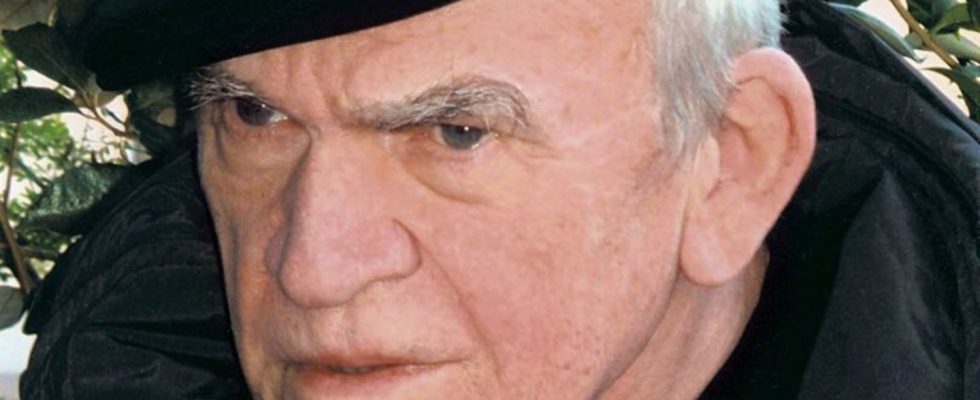literature
Bestselling author Milan Kundera has died
The author Milan Kundera died at the age of 94. photo
© epa efe/epa/dpa
His tragicomic love stories moved many people and were translated into all languages of the world. His subjects were life in exile and the European novel. Now Milan Kundera has died.
Kundera achieved world fame in 1984 with his novel “The Unbearable Lightness of Being”. Hollywood filmed the tragic love and exile story between the waitress Teresa and the doctor Tomas, starring Juliette Binoche and Daniel Day-Lewis.
The EU Parliament commemorated the late writer with a minute’s silence. Kundera embodied European unity and denounced communist totalitarianism, said the applicant, French MEP Bernard Guetta. The House of Representatives in Prague also held a minute’s silence.
Czech Prime Minister Petr Fiala wrote on Twitter that Kundera had reached entire generations of readers on all continents with his work and achieved world fame. “Milan Kundera’s work shows people in their beauty and in their terror,” explained publisher Jo Lendle from Munich’s Hanser-Verlag. “Twentieth-century literature would be incomplete without him.”
Tales of “ridiculous love”
Kundera was born on April 1, 1929 in Brno, Moravia. He came from an educated family. His father was rector of a music college, his mother a teacher. His cousin Ludvik was a surrealist writer. Kundera enthusiastically joined the Communist Party at the age of 18, like many of his generation. He wrote poems on Stalin.
He celebrated his first major success in prose with loose stories about “ridiculous love”. They showed unequal lovers in grotesque situations. Kundera dealt with Stalinism in his novel “Der Joke”. He later became a prominent representative of the socialist democracy movement “Prague Spring”.
In 1975 he went into exile in France
The invasion of the Warsaw Pact countries in August 1968 ended the dream of “socialism with a human face”. In an important essay at the time, Kundera argued that Central Europe had been “kidnapped” from the West after World War II. In 1975 he moved to France with his wife, the television announcer Vera, and in 1979 his Czechoslovakian citizenship was revoked.
Exactly 40 years later, Kundera again became a Czech citizen. The initiative for this went back to the former Francophile Prime Minister Andrej Babis, who had visited the author in Paris. In many of his books, Kundera devoted himself to his central theme, life in exile. The 2000 novel “The Ignorance” is about the difficulties of the returnees.
The big questions of identity and history
Kundera liked to spice up his novels with philosophical excursions – from Janacek’s music to the meaning of laughter. He saw himself as a defender of the European novel. “The novel is a meditation that goes to the bottom of existence through imaginary figures,” he once wrote.
Kundera was always concerned with the big questions of identity, history and existence. He was often traded as a candidate for the Nobel Prize in Literature, but it never came to be. He was charged with allegations based on a police report that he had betrayed an anti-communist spy in 1950. He himself denied this.
In the summer of 2020, an extremely critical biography by the publicist Jan Novak about the author’s early years under socialism was published in Prague. The late work, from “The Immortality” to “The Identity” to the “Festival of Insignificance”, was generally well received. Kundera’s writer colleague Milan Uhde now paid tribute to his childhood friend with the words: “He was an outstanding, unique, unrepeatable person.”

